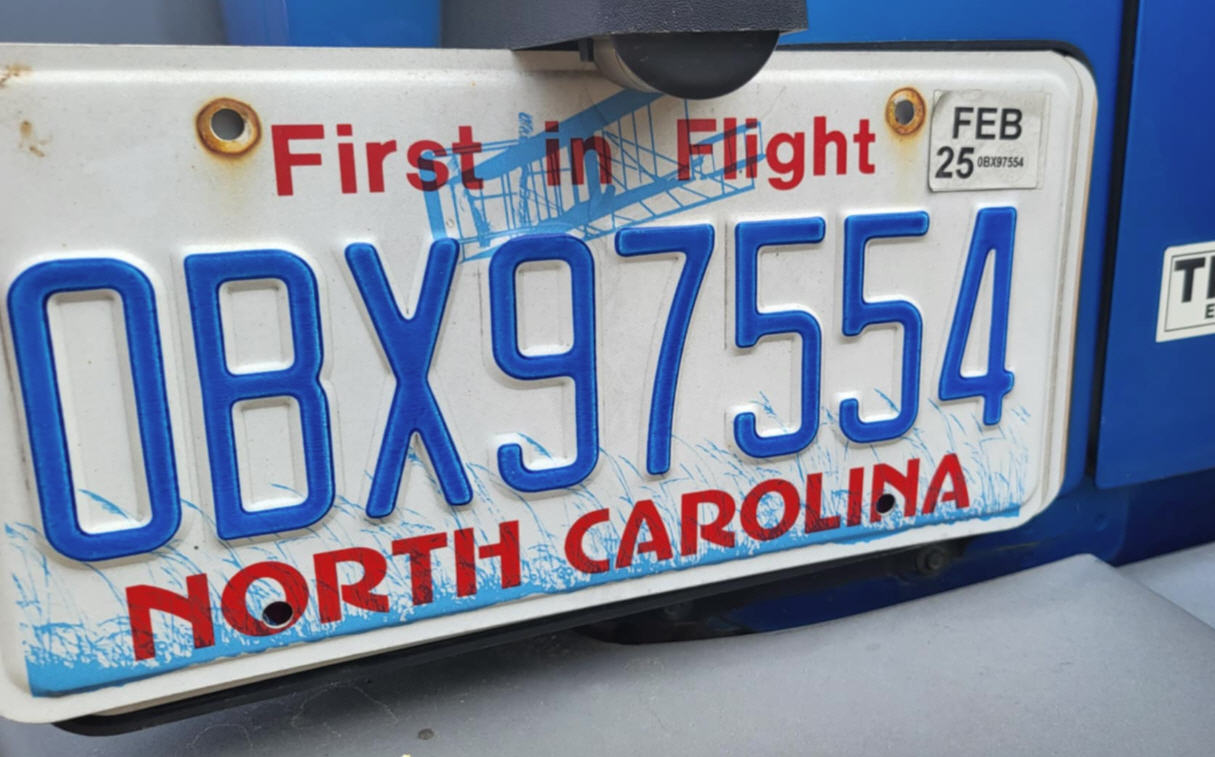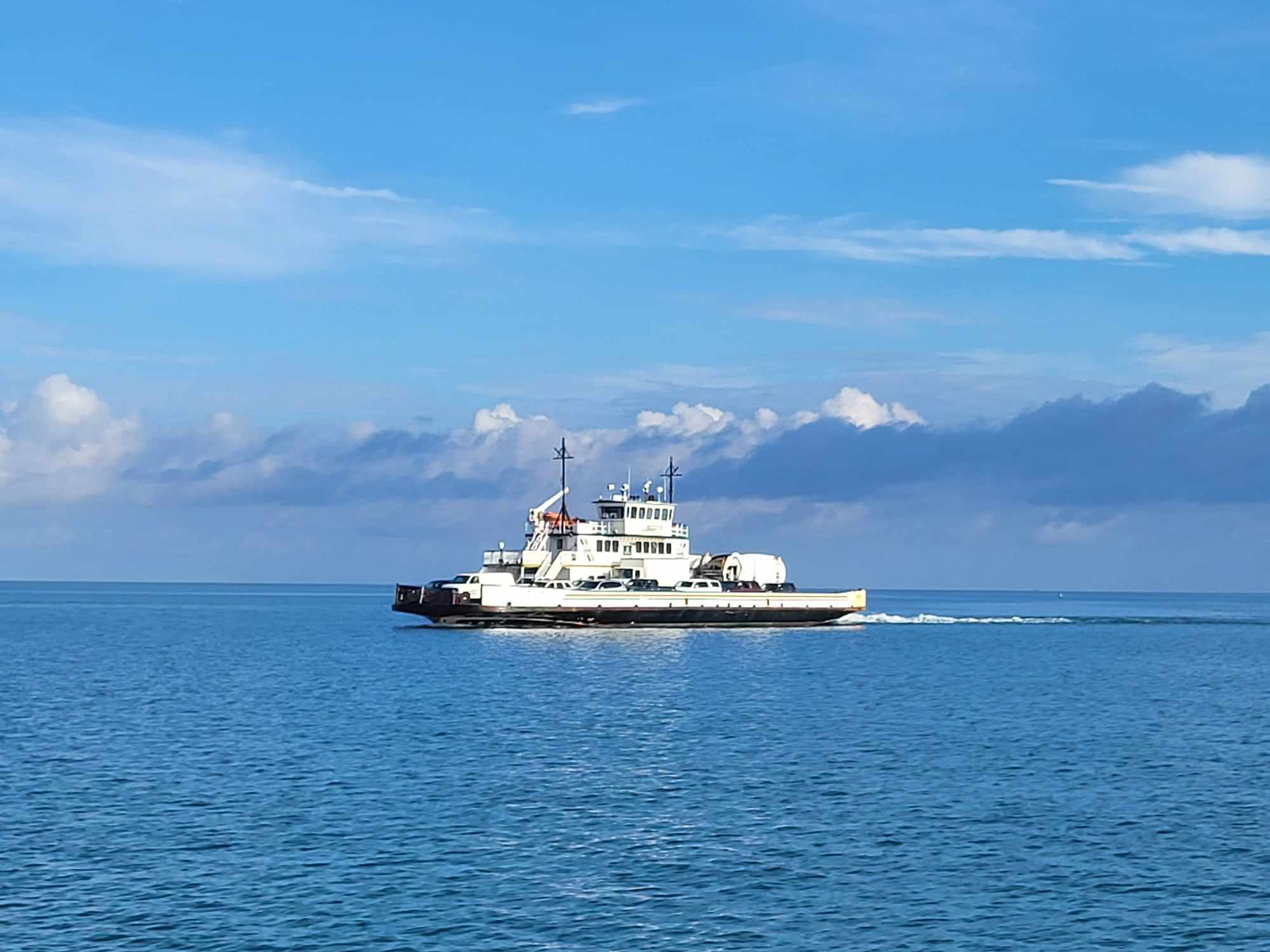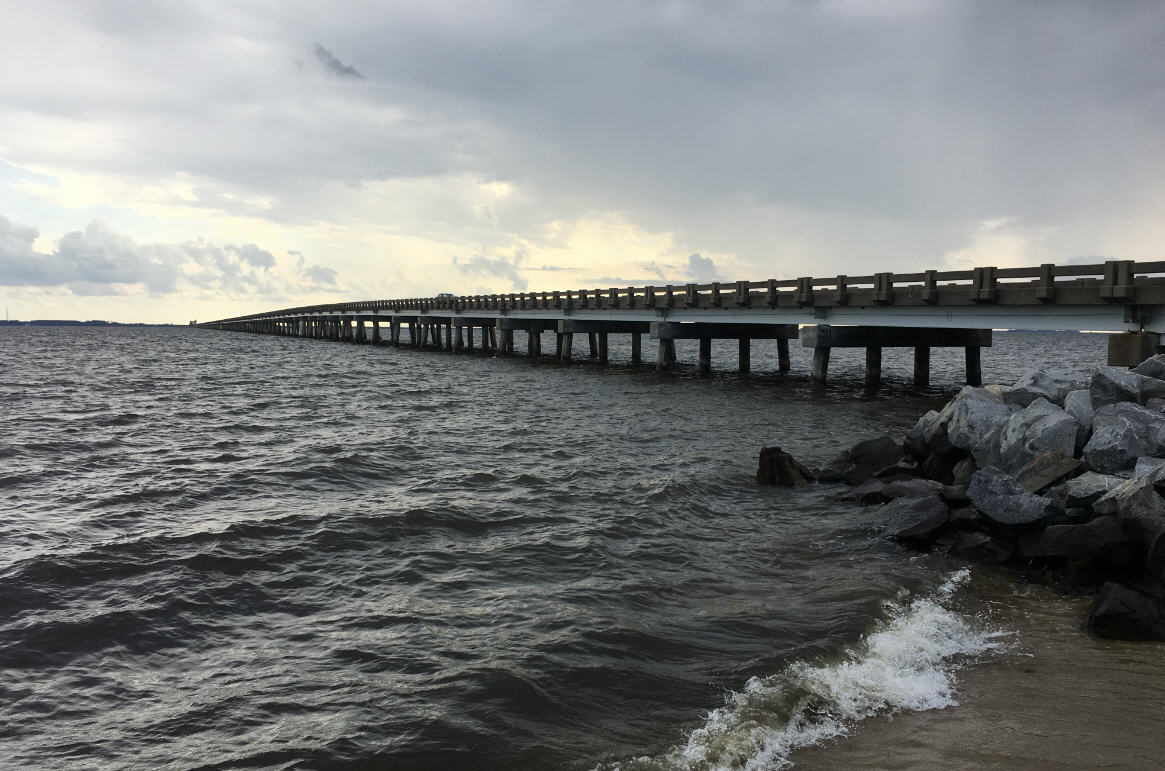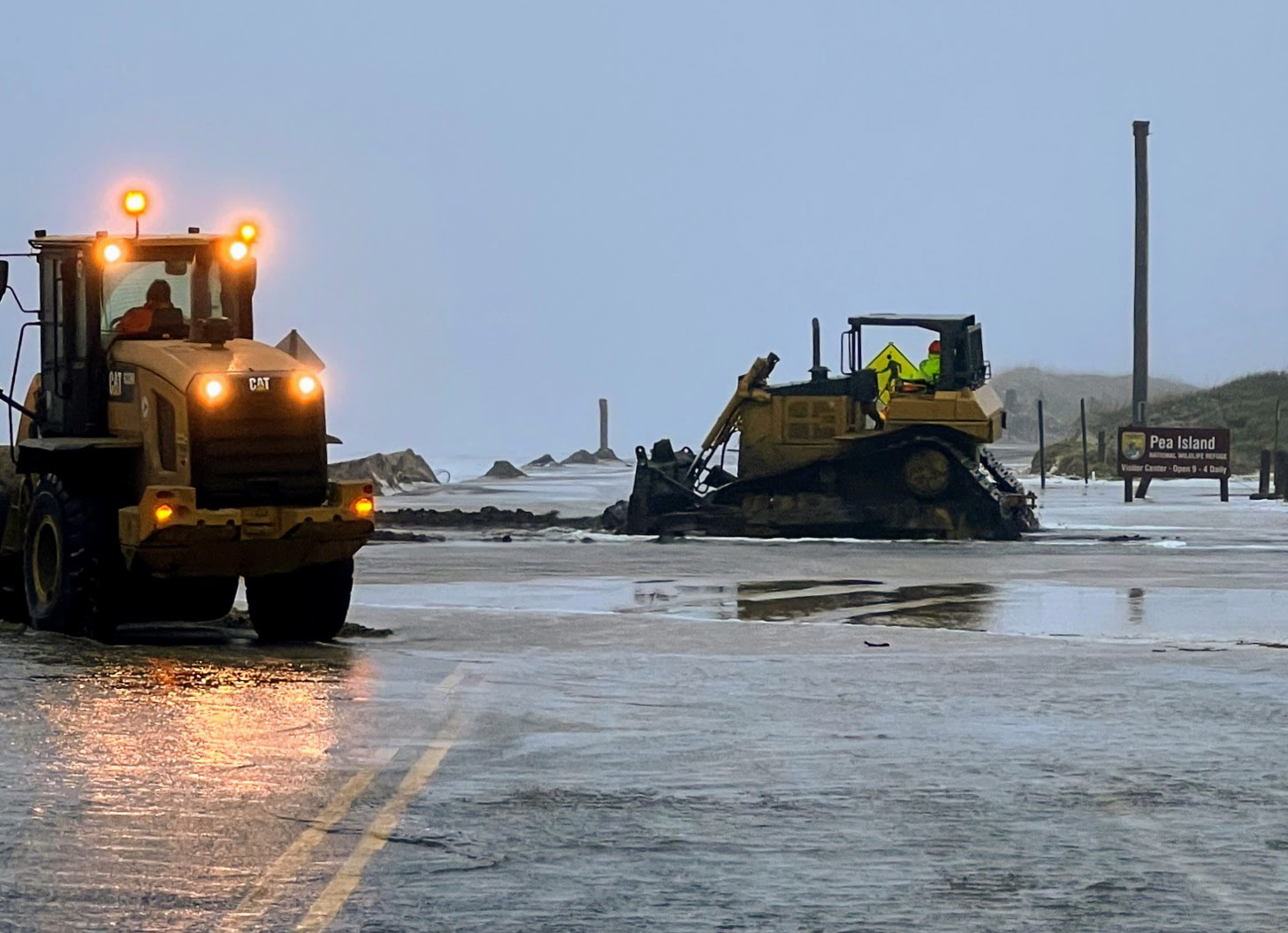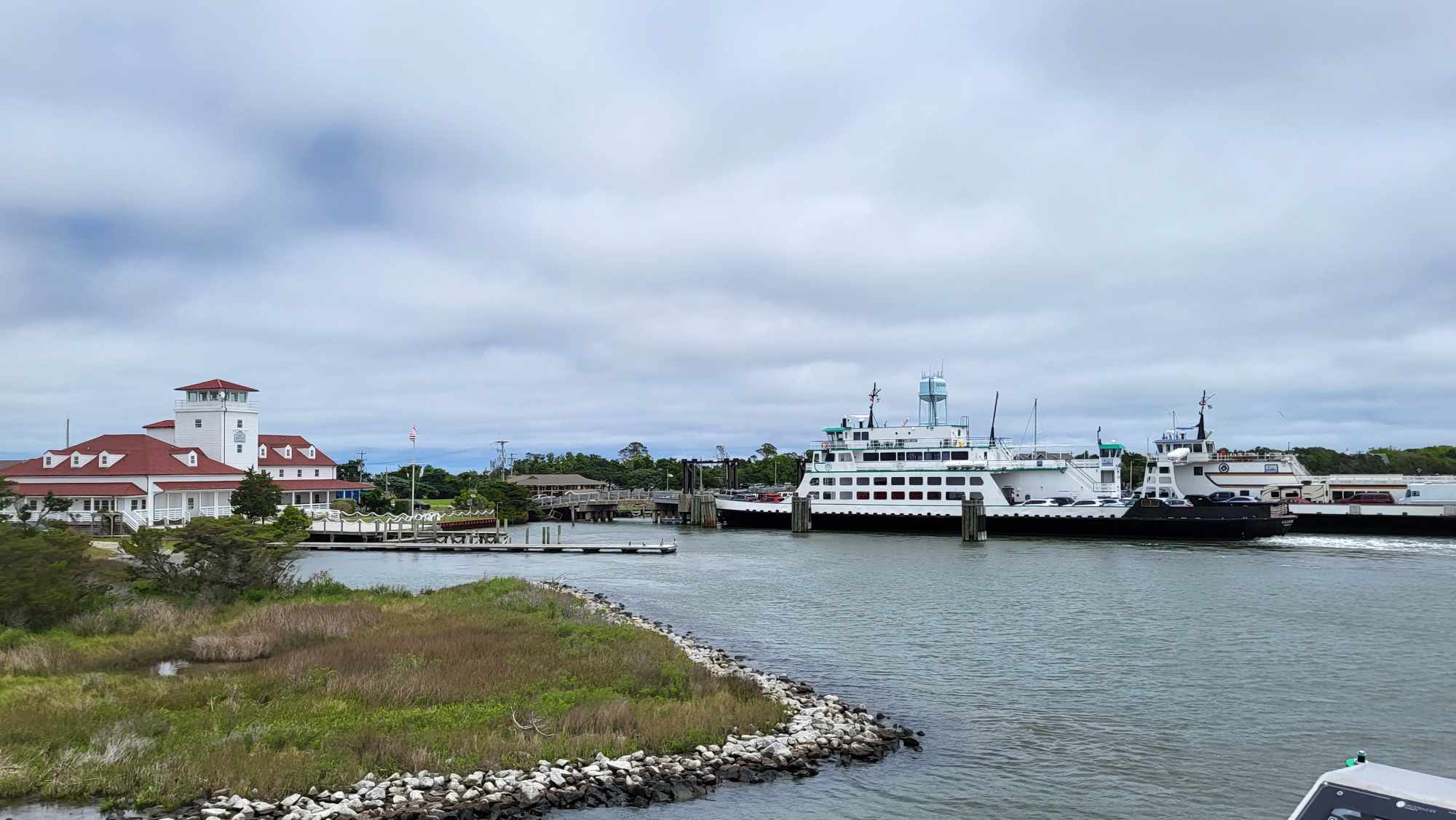A preservation success story: Saving Ocracoke’s last fish house By Catherine Kozak Coastal Review Online
Six years ago, Ocracoke Island nearly lost its identity as a fishing village, and with it, the soul of the community’s traditional livelihood.
The island’s last remaining fish house had been put up for sale. And without a fish house, fishermen would be forced to leave the island to sell their catch or stop fishing.
So they banded together and bought it themselves.
An all-to-rare preservation success story, the Ocracoke Seafood Co. today is a thriving, self-sustaining, self-managed fish house that includes a profitable retail storefront market that sells the fresh daily catch.
“We’re lucky here that we have the tourist industry because a lot of our fish are cleaned and delivered to the local restaurants,” said Hardy Plyler, the fish house manager. “So having the tourists here helps our fish house and likewise, the tourists like our fish house.
“Tourists tell us that Ocracoke village wouldn’t be the same without the fish house.”
Plyler and about 30 other fishermen organized the Ocracoke Working Watermen’s Association, putting it under the umbrella of the newly formed non-profit Ocracoke Foundation. The Ocracoke Seafood Co., a for-profit subsidiary of the foundation, was used as their base of operation. The business sells to wholesalers off the island and markets its fresh product at the retail store.
Gene Ballance, 59, a native waterman who keeps the fish house catch data records and helps fishermen file complicated trip ticket records as required by fisheries regulations, said that the 42 or so waterman who had sold their catch in the last year got a proportional share of the annual fish house profits, based on each individual’s landings.
It was not a whole lot of money, he said, but with the data entered into the fish house’s computer, everyone at least knows they got a fair cut.
“It’s like trying to control bees,” said Ballance, who has an affable demeanor and a ready grin. “That’s how we hold it together.”
The foundation, he added, is hands-off on the daily operation of the fish house.
A former Hyde County Commissioner, Ballance knows his way around bureaucracy, which no doubt has been a useful skill in dealing with the regulatory morass of fisheries management. But his lifelong experience as a waterman has come into play most skillfully in the foundation’s oyster bed project
Using the newly-purchased barge, Ballance and another fisherman planted the first cultch of oyster shells on a 100-year-old oyster bed in the Pamlico Sound on the north side of the village. Some of the thousands of bushels of shells came from the popular oyster roast held on the island between Christmas and New Year’s.
Ocracoke’s once-robust oyster fishery has been depleted, likely by a combination of natural forces and pollution. Although it takes about three years before any marketable size oyster can be harvested from the bed, Ballance said that the hope is that the oyster reef seeding, which they plan to expand, will help the fishery recover.
To Plyler, 62, who has fished the waters off Ocracoke for 40 years, the oyster project is another example of the fishing community being proactive in protecting their livelihood as well as their heritage, while looking out for future of the island.
“It’ll provide income for fishermen in the winter,” he said.
The public will also be allowed to harvest some of the oysters.
Plyler grew up in Gates County and moved to Ocracoke in the 1970s after graduating from the University of North Carolina at Chapel Hill. His strong personality and sharp intellect ushered the fish house to its current success.
When the Old South Point Fish House was put on the market in 2006 after closing that winter, local fishermen had already been scrambling for months to sell their fish and shrimp at other locations. They knew the additional fuel cost and time would not be sustainable, but they also knew that the fish house, located on valuable waterfront property in the village business district, was vulnerable to redevelopment.
The fishermen pulled together and formed the Working Waterman’s group, and hammered out an agreement to lease the fish house. It opened for business in July 2006, and a month later the foundation was incorporated. Along the way, the N.C. Rural Economic Development Center provided a $325,000 grant, which paid back a bridge loan from Hyde County. In 2008, the state’s Golden Leaf foundation gave the fishermen a $407,710. Another Golden Leaf grant for $30,000 helped finance the barge and planting for the oyster reef project.
“I tell you,” said Robin Payne, the foundation’s executive director, “if it wasn’t for their help, we wouldn’t be anything.”
Even so, what really made saving the fish house possible, she said, was that the O’Neal family honored the terms of the 99-year lease their father Van Henry O’Neal wrote back in the 1970s that stipulates the property must be used for a fish house.
Since opening, the fish house has been renovated, Plyler said, as he opened doors to a huge room filled with shaved ice and a refrigerated room that holds fresh catch. One room with a table and chairs, he said, is where a group of ten or so retired watermen gather every morning before dawn to drink coffee and chat.
The heart of the fish house is the rebuilt dock overlooking picturesque Silver Lake harbor, where fish are off-loaded from trawlers or smaller fishing vessels.
Equipment, much of it new, includes a winch, conveyer belt and washing vat, and a cutting room with sinks. The fish are cleaned, weighed, iced, boxed, labeled and put into storage. Fresh catch is also delivered to the retail market adjacent to the fish house and to local restaurants.
“The most important thing is we pay $400,000 to $500,000 a year to local fishermen for their product,” Plyler said.
The roughest part of the business now is dealing with the ever-changing and complex fisheries regulations, he said. That and the challenges presented by climate change, pollution and bad weather.
Customers in the market line up in front of the counter, surveying steaks and filets of fresh fish, as well as plentiful supplies of fresh shrimp and whatever other shellfish is in season.
Plyler’s wife, Pattie, an effervescent woman with thick wavy hair and a big smile, offers cooking tips and even details about where, when and how the fish were caught.
“This is our busy time now,” Plyler said, as she buzzed back and forth. “We talk recipes and we go home hungry.”
A white memo board on the wall has a two-column list of finfish and shellfish, with a red dot next to those that are available.
“Ooooohh, yellowfin tuna!” a customer exclaimed, gazing through the glass at a thick red steak. “I wish I had my grill!
Tourists not only love that fresh local-caught fish is readily available at the market, they also love to watch the fishermen at work when a boat comes into the dock.
Part of the mission of the Working Watermen is educating the public. A waterman’s museum with historic photographs and examples of fishing gear is at the pier in nearby Community Square. Watermen also give talks at schools and presentations at seafood festivals.
The fish house has reinvigorated the island’s 300-year-old maritime industry and turned employment on its head.
“It’s sustained the jobs through the economic downturn,” Ballance said. “Local government has cut back on the jobs. It used to be the other way around. We’re picking up the slack.”
Not only are more fishermen — and several women — fishing, there are also younger folk who are fishing and volunteering.
“Twenty years ago, a lot of the young kids started building houses here,” Plyler said. “The trend is going back to fishing because of the economy.”
Payne, the foundation director, said that saving the fish house illustrates the interdependence between the environment, the community and the local economy, and the importance of each staying healthy, vibrant and responsive.
The next goal of the foundation is to establish “value-added” product — say, homemade Ocracoke clam chowder or Ocracoke smoked fish –to market locally and eventually, sell online. The proposed plan is to build a commercial kitchen in the village and hire people to cook the fish and others to sell it. Perhaps there could be culinary classes
Payne said the foundation is seeking grant money to write a business plan and intends to hold a brainstorming session with the community this fall to gather ideas.
The key to the success of the foundation’s projects like the fish house, she said, is the sense of ownership the fishermen have over the outcome.
“It’s the watermen’s fish house — it’s theirs,” Payne said. “I think that’s the most important thing. It’s 100 percent theirs.”
(This story is provided courtesy of Coastal Review Online, the coastal news and features service of the N.C. Coastal Federation. You can read other stories about the N.C. coast at www.nccoast.org.)





